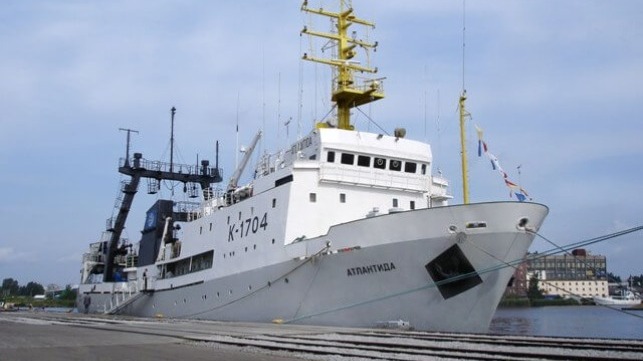Russia Launches Expedition to Study African Fisheries Resources

The Russian fishing fleet is set to expand into the African fisheries sector with the launch of a major research expedition by the Russian Federal Agency for Fisheries. The study is dubbed the "Great African Expedition" and aims to evaluate marine resources along the coast of 18 African countries spanning the Atlantic and the Indian Oceans.
The expedition began in Kaliningrad and involves two research vessels from the Russian federal fisheries agency. The first vessel, the Atlantniro, will cover coastal zones of countries such as Mauritania, Nigeria, Morocco, Cameroon, Sao Tome and Principe, Gabon, Republic of Congo, Equatorial Guinea and Angola. The second vessel, Atlantida, will focus on the waters of Guinea-Bissau, Senegal, Mozambique, Sierra Leone, Madagascar, Mauritius and Eritrea.
The study is expected to last for two years. According to the Russian Research Institute of Fisheries and Oceanography, each vessel will have a team of 12 marine experts. Additional African researchers will also join the expedition from participating countries.
During the Russia-Africa summit last year, one of the key resolutions was enhancing cooperation and joint research in agriculture and fisheries. In April this year, President Vladimir Putin okayed the federal fisheries agency to organize the expedition to Africa.
The data obtained from the study will help Russia discover new fishing areas and update information on Africa’s fish stocks.
“Last year, our fishing industry set a record by harvesting 5.37 million tons of aquatic natural resources. As a result of the Great African expedition, the scope of our fishing operations will further expand,” said Russian Deputy Prime Minister Dmitry Patrushev.
The expedition to Africa coincides with Russian plans to build at least 100 new fishing vessels by 2025, representing a 50 percent increase in the country’s overall fleet capacity. Currently, the Russian fishing fleet is old and its fish-processing technologies are outdated. Many fishing vessels in the fleet were built in the 1980s, and the average service life is 30 years.
Russia is entering the African fishing sector at a time when the region is facing multiple threats from IUU (Illegal, Unreported and Unregulated) fishing. In regions such as West Africa, the average fish catches by traditional fishing communities have declined significantly over the past three decades. In Ghana for instance, the total landings of small pelagic fish fell by 59 percent between 1993 and 2019, despite increased fishing efforts, according to researchers from the University of Energy and Natural Resources, Sunyani. Foreign fishing operators - primarily from the Chinese distant-water fleet - and foreign fishmeal producers have been blamed by environmental advocates for evading regulations and overfishing.
